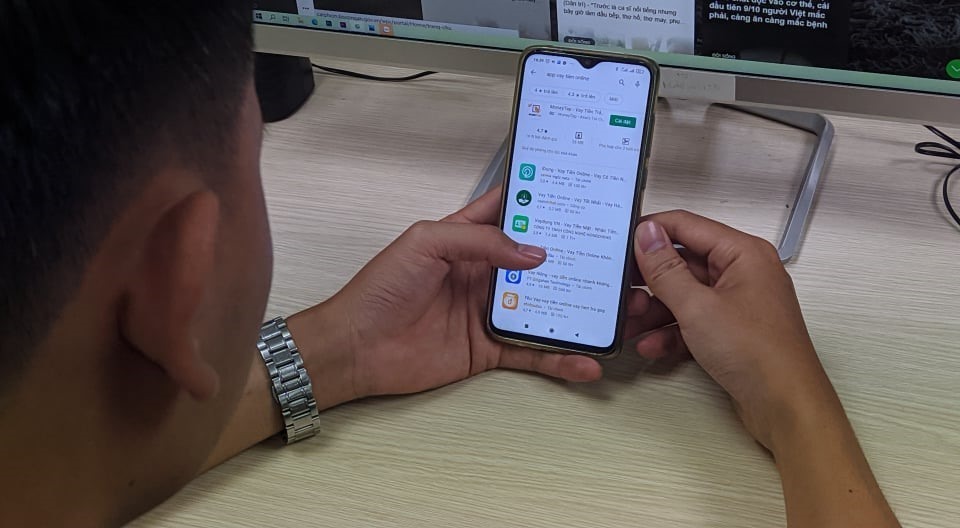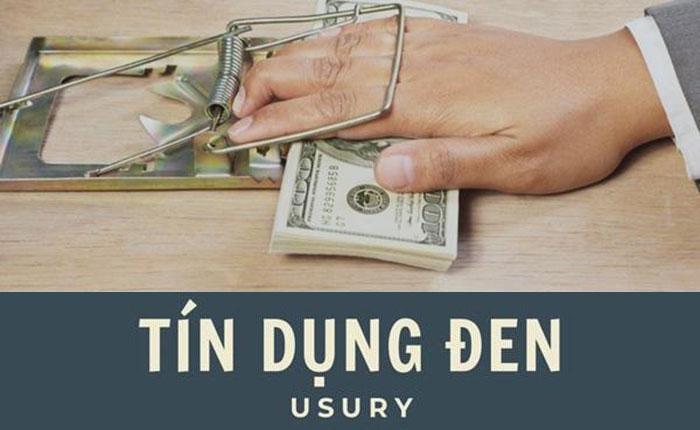
Hoang Van Thanh in Cau Giay district in Hanoi, for example, said he received a call from a strange number one day. The caller introduced himself as the representative of a finance company specializing in providing consumer loans.
The man said Thanh could meet the requirements to borrow VND35 million at a zero percent interest rate under a program supporting people hit on by the pandemic.
The man told Thanh to download an app to his mobile phone and follow procedures to get his loan. After the procedure was completed, Thanh was told to pay a deposit of VND3.5 million to the company’s account. The amount of money will be remitted back to Thanh together with the loan, worth VND35 million.
However, Thanh did not receive any loan at all, while he failed to contact the man. As such, he lost VND3.5 million.
Thanh Thuy in Ninh Binh told reporters that she received a message which said she was eligible for a loan worth VND50 million and she had to pay the fee of VND4 million.
As Thuy did not have VND4 million, she was advised to borrow that amount of money from an app. After paying VND4 million worth of ‘fee’ and implementing the steps to log in the account, she saw the notice that the account has been frozen.
When she contacted the person who sent the message, she was told that she made a mistake when logging in the account, so she could not get approval for the VND50 million loan, and she had to pay a VND10 million fee.
Thuy again had to borrow VND10 million from other apps to pay the ‘fees’. However, she could not access the VND50 million loan as promised.
Thuy realized that she was cheated, and that the apps which lent VND14 million to her belonged to the same ring. She decided that she would not pay the debts. However, she has been harassed daily by the lenders, who have made hundreds of calls to demand debt payment, insulting and threatening her.
Legal experts from VietCredit said scammers nowadays use very sophisticated tricks to swindle people.
They lend money via an app called Space, while using names similar to names of finance companies, and illegally use information about head offices and branches of finance companies to cause misunderstandings, which helps them appropriate money from borrowers.
At first, the scammers approach people who want to borrow money via Zalo, and offer them attractive loans. They tell borrowers to install apps, and then ask borrowers to pay a deposit to prove borrowers’ solvency. They say that the deposits will be refunded when borrowers receive loans.
Another trick used by scammers is pretending to be officers of finance companies and asking people to provide personal information (identity card, bank account number, e-wallet OTP etc…) to get the loan disbursed into their bank accounts.
After getting information, scammers withdraw money from borrowers’ bank accounts via e-wallet transactions and block all contacts.
Many people who are the victims of the cheating said the scammers who contacted them said they were from VietCredit finance company.
However, VietCredit said that they were just imposters and that any institution or app called ‘Space’ has no relation with VietCredit. VietCredit doesn’t require borrowers to pay any kind of deposit to prove their solvency.
A representative of VietCredit recommended that borrowers not provide personal information to strangers under any form.
Lawyer Truong Thanh Duc said that no finance company or commercial bank provides loans with such simple procedures, and that people need to be wary of lenders who disburse money so easily. When borrowing money, people need to visit head offices of banks or finance companies and follow necessary procedures.
Tran Thuy

'Black-credit' lenders pose serious threat to borrowers
Experts have repeatedly rung the alarm bell over black credit, which is causing serious consequences to families and society.

Over 6.4 million poor households access social policy bank loans
As of March, more than 6.4 million poor and near-poor households had won access to loans from the Vietnam Bank for Social Policies (VBSP).